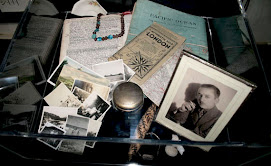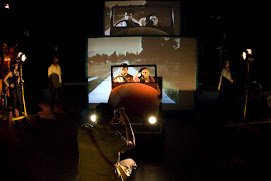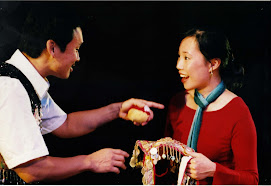‘Don't let auteurs take over in theatre. Elevating the director to cult status at the expense of the writer is the road to Hollywood's creative bankruptcy: keep the dramatist at the heart of the creative process.’ That’s not me, that’s the intro to a recent blog post from Britain’s Michael Billington. Hmm …
I’m a playwright, so of course I want space for writers to practise and develop their craft. Support for writers to initiate and develop their own ideas, as well as work on projects dreamt up by others. Opportunities to collaborate with different artists in the creation of work across the whole spectrum of theatre and performance. But what troubles me about Billington’s post is his notion of 2 discrete entities: a ‘writers’ theatre and a ‘directors’ theatre. And the implication that the rise of one presages the decline of the other. Isn’t it time we chucked this division in the bin? Isn’t it more useful to think instead of the whole ecology? Speaking for myself, I want to write for a range of forms, and work in a range of ways with a range of other artists. And maybe this is naïve or overly idealistic, but isn’t it far more likely that really good work in one area will encourage really good work in another, rather than jeopardise its existence?
This issue has particular currency for me as I’ve just returned from Melbourne and a week’s workshop with The Eleventh Hour on a new theatre project with the working title Debts. Drawing inspiration from Shakespeare’s The Merchant of Venice, and from the various incarnations of Christopher Isherwood’s Berlin stories, including the film Cabaret, the project is looking at debt and notions of indebtedness. The concept is the brainchild of the company's artistic directors; as the writer, I am also contributing ideas (as well as text) and will help shape the piece; the actors likewise have input into the development of Debts. In other words, the work is collaborative, and is being created not solely by the playwright, not solely by a director or auteur, but by a team of artists with specific skills and roles. And isn't this the case with most theatre? Even if you sit in front of your computer and write a play with no involvement from anyone else, you're going to rely on collaborators to realise it as theatre, and unless you're a total control freak, those collaborators are going to participate in the creation of the work as theatre.
Last week's workshop was the first stage of our creative development, and I had a great week with directors/dramaturgs Anne Thompson and William Henderson, and actors Jane Nolan, Rodney Afif and Greg Ulfan. I’d contacted the company about 18 months ago, because I really liked what I'd read about them and thought they sounded like a company of substance rather than PR hype. (Which they are, by the way.) The invitation to collaborate on Debts came out of this initial dialogue.
Naturally we discussed our ideas for the piece around the table, but every day also involved plenty of work on the floor. Experimenting, trying out things, exploring possibilities, looking at what happens when you crash and juxtapose different texts, genres and styles. For a playwright this is fantastic, because I get to see how things might work theatrically—or not. It forces you to think performatively, of bodies in space, of words in mouths. It reminds you that sentences and situations that read brilliantly on the page may not be effective on stage; it encourages you to wrestle, question and rhapsodise. You bounce ideas around the room, off each other, and those ideas keep on bouncing around in your head as you board QF462 back to Sydney, as you do the weekend shopping, and days later as you walk along the foreshore at dusk.
2 more workshops/creative developments are scheduled for July and August.
19 April 2009
Playwrights, Directors, Auteurs ...
Subscribe to:
Post Comments (Atom)
+Photo+Leah+McGirr+3.jpg)




No comments:
Post a Comment